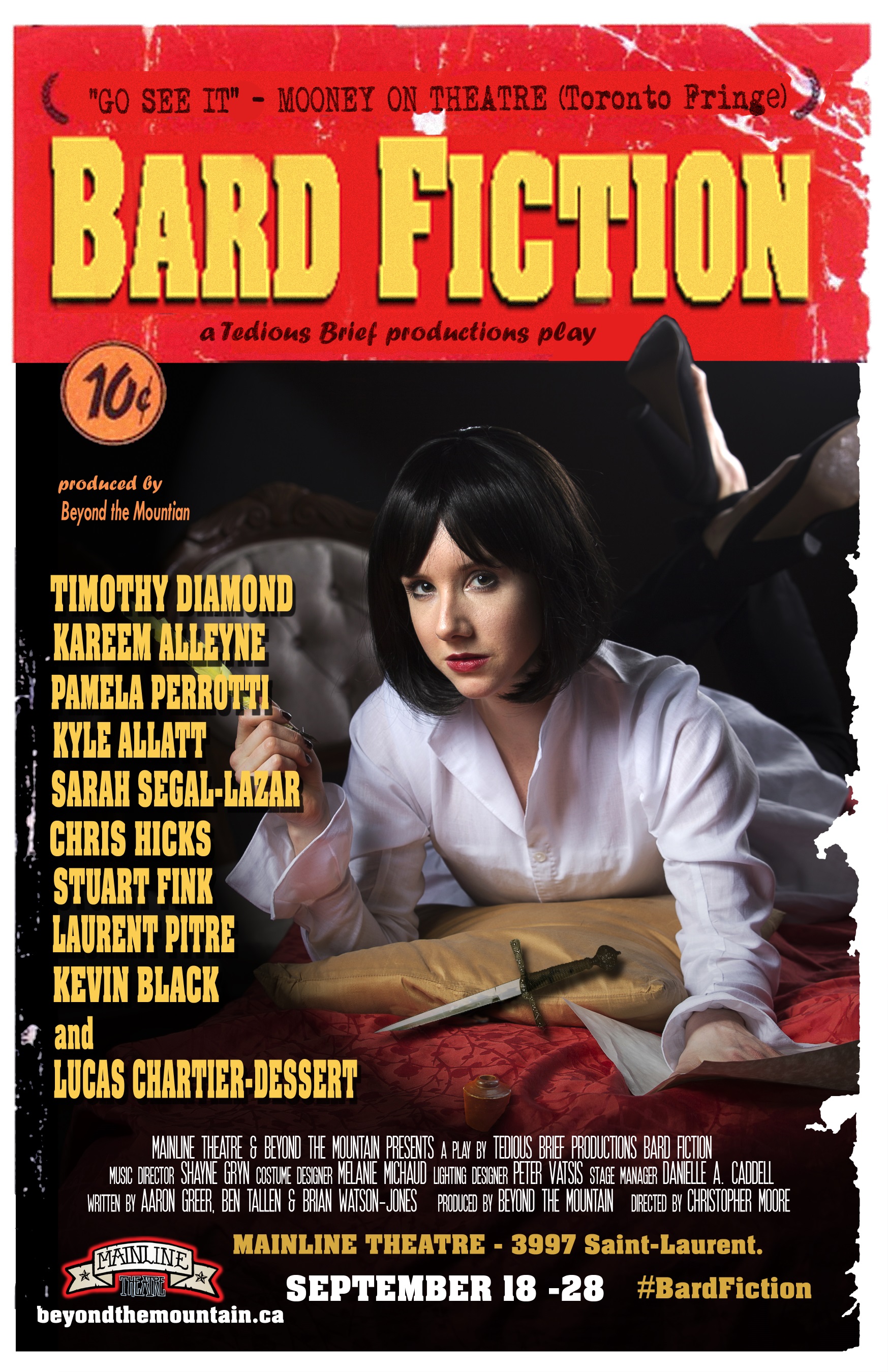Bard Fiction at Mainline Theatre blends Shakespeare and Pulp Fiction in five star production
The only thing better than Pulp Fiction is Pulp Fiction in iambic pentameter.
Bard Fiction is a must-see theatrical version of Quentin Tarantino’s cult classic in Shakespearean English, which ran its Quebec premiere Thursday, Sept. 18, at Mainline Theatre to thunderous applause.
Set in the 17th century where cottage pies replace Big Macs and a stallion replaces Zed’s motorcycle, this hour-long production had the audience whooping, laughing, and breaking out in applause when they heard their favourite lines directly translated into Shakespearean English.
Butch, played by Lucas Chartier, escapes from the would-be rape dungeon and, while trying to decide to save Marsellus or leave him behind, tears at his hair and cries, “TO FLEE, OR NOT TO FLEE.”
Produced by Beyond the Mountain Productions and running at MainLine Theatre from now until Sunday, Sept. 28, this is a production that all Tarantin-attics must see.
Guns are replaced by daggers and sabers, suits boast ruffles and tights, cars become carriages, and the classic Vincent and Mia dance scene begins with a bow and a curtsey.
“I’m relieved. I knew it would do well, but it’s always a pleasure to hear people laugh when they’re supposed to laugh … and this is one of those few venues where you can see the smiles on people’s faces,” said Artistic Director and Production Manager Danielle Caddell.
Caddell is the driving-force behind bringing Bard Fiction to Canada, using her theatre contacts to bring the play first to the Toronto Fringe festival, and now to Montreal.
Mainline Theatre is an intimate venue, with the audience wrapped close around the stage. A flutist in the audience plays most of the music for the production, and Marsellus is often illuminated while sitting in an audience chair to deliver a line, to the delight of audience-members sitting next to him.
Lancelot and three other minor characters are played by Concordia playwright student Laurent McCuaig Pitre.
The cast of nine only had two to three weeks to rehearse said McCuaig, but all actors have previous experience working with Shakespeare.
Still, being such Pulp Fiction fans, the actors didn’t have to work hard to muddle through the meaning of their Shakespearean lines because they knew what the meaning was from the original movie added Chartier, or Butch, the latter having performed in Hamlet and Love Labour’s Lost before.
Non-Shakespearean buffs shouldn’t fret if they didn’t excel in high school English classes though. An argument between Vincent and Jules about the varying intimacies of foot rubs and culingus is still just that, and what words are lost in meaning are made up for in gestures, facial expressions and attitude.
That, and the phrase, “lower lip” isn’t entirely difficult to decipher.
The only recommendation to give is to watch Pulp Fiction before the show so you can cheer loudly when you hear your favourite quotes and insults delivered in beautiful Shakespearean prose, thy poxed whoreson.
Bard Fiction runs every Friday, Saturday and Sunday with varying showtimes till the end of the month. Tickets sell for $12 a pop for students and are available at beyondthemountain.ca
